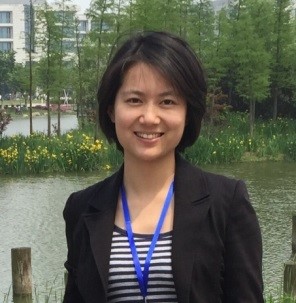-
Weiwei Ben, Bing Zhu, Xiangjuan Yuan, Yu Zhang, Min Yang, Zhimin Qiang*. Occurrence, removal and risk of organic micropollutants in wastewater treatment plants across China: Comparison of wastewater treatment processes. Water Research, 2018, 130, 38-46.
-
Weiwei Ben, Bing Zhu, Xiangjuan Yuan, Yu Zhang, Min Yang, Zhimin Qiang*. Transformation and fate of natural estrogens and their conjugates in wastewater treatment processes: Influence of operational parameters and removal pathway evaluation. Water Research, 2017, 124, 244-250.
-
Weiwei Ben, Yanwei Shi, Weiwei Li, Zhimin Qiang*. Oxidation of sulfonamide antibiotics by chlorine dioxide in water: Kinetics and reaction pathways. Chemical Engineering Journal, 2017, 327, 743-750.
-
Weiwei Ben, Jian Wang, Rukun Cao, Min Yang, Yu Zhang, Zhimin Qiang*. Distribution of antibiotic resistance in the effluents of ten municipal wastewater treatment plants in China and the effect of treatment processes. Chemosphere, 2017, 172, 392-398.
-
Weiwei Ben, Jian Wang, Xun Pan, Zhimin Qiang*. Dissemination of antibiotic resistance genes and their potential removal by on-farm treatment processes in nine swine feedlots in Shandong Province, China. Chemosphere, 2017, 167, 262-268.
-
Weiwei Ben, Peizhe Sun, Ching-Hua Huang*. Effect of combined UV and chlorine treatment on chloroform formation from triclosan. Chemosphere, 2016, 150, 715-722.
-
Weiwei Ben, Zhimin Qiang*, Xiaowei Yin, Jiuhui Qu, Xun Pan. Adsorption behavior of sulfamethazine in an activated sludge process treating swine wastewater. Journal of Environmental Sciences, 2014, 26 (8), 1623-1629.
-
Weiwei Ben, Xun Pan, Zhimin Qiang*. Occurrence and partition of antibiotics in the liquid and solid phases of swine wastewater from concentrated animal feeding operations in Shandong Province, China. Environmental Science: Processes & Impacts, 2013, 15 (4), 870-875.
-
Weiwei Ben, Zhimin Qiang*, Xun Pan, Yafeng Nie. Degradation of veterinary antibiotics by ozone in swine wastewater pretreated with sequencing batch reactor. Journal of Environmental Engineering - ASCE, 2012, 138 (3), 272-277.
-
Jian Wang, Weiwei Ben*, Min Yang, Yu Zhang, Zhimin Qiang*. Dissemination of veterinary antibiotics and corresponding resistance genes from a concentrated swine feedlot along the waste treatment paths. Environmental International, 2016, 92-93, 317-323.
